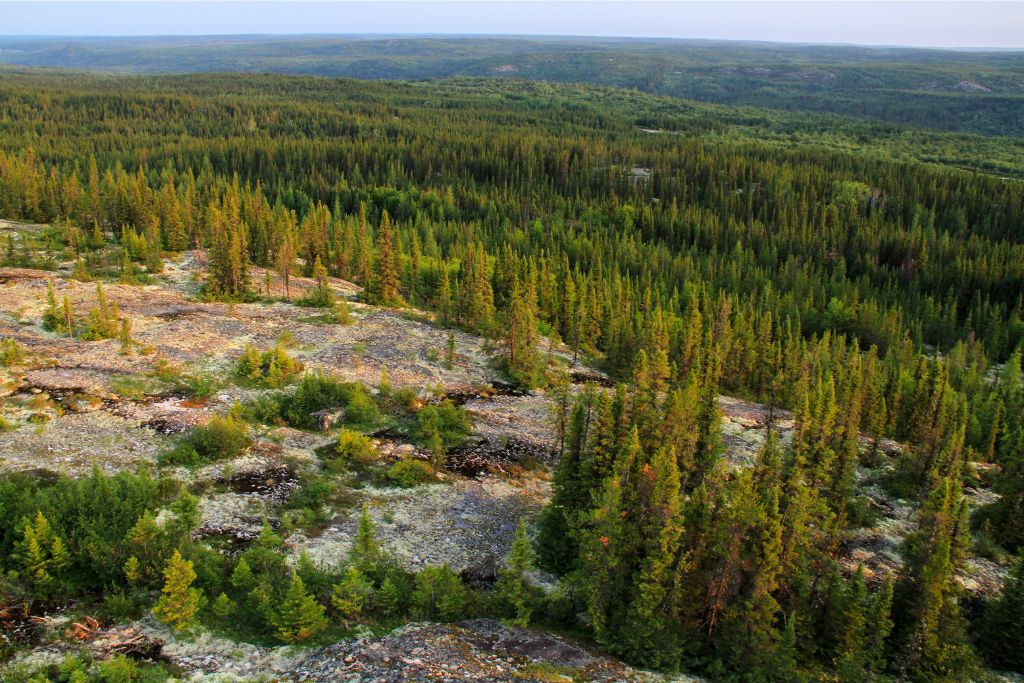Researchers assessed rainforest carbon offset projects, also known as REDD+ projects, concluding that they are not only unsuitable for carbon reduction but also lead to the displacement or dispossession of vulnerable communities.
—
The carbon credit market was hit by new allegations of false CO2 reduction claims as researchers found that about a quarter of global carbon offset projects are prone to greenwashing.
The new study by UC Berkley Carbon Trading Project, supported by Carbon Market Watch and published earlier this month, looked into rainforest carbon credits certified by Verra. The non-profit organisation operates standards in environmental and social markets, including the world’s leading carbon crediting standard. Also known as Reducing Emissions from Deforestation and Forest Degradation (REDD+), these projects provide financial support to governments, organisations, communities, and individuals for activities aimed at preserving forests – primarily tropical ones in the Global South – and the enhancement of forest carbon stocks.
Researchers assessed quality factors of Verra’s rainforest carbon credit systems, including their durability, forest carbon accounting, community safeguards as well as deforestation leakage and baseline, and found widespread shortcomings in all five areas. They also accused project auditors, who are hired by project developers and tasked with verifying them and ensuring their quality, did not adequately enforce compliance with Verra’s standards.
Over the last two decades, REDD+ projects have received more than US$3 billion in aid and have generated nearly half a billion carbon credits. Some of the world’s largest polluting companies have based their climate statements on REDD+ projects, including Delta Airlines as well as oil giants Shell and Eni.
Nevertheless, tropical forest loss continues at an alarming rate. The world has been chopping down 10 million hectares of trees every year to make space to grow crops and livestock and produce materials such as paper. This accounts for about 16% of total tree loss cover. 96% of deforestation takes place in tropical forests.
“REDD+ is not designed to address the most important commercial drivers of deforestation: politically and economically powerful large-scale agriculture, cattle ranching, logging, and mining,” the study reads.
Instead, the authors conclude that the only real beneficiaries of these projects are the project developers, credit buyers, and auditors, who see them as “a check-box activity”. On the contrary, vulnerable rainforest communities are more at risk as some projects fail to safeguard them.
“While many projects aim to better the lives of forest communities, some also restrict smallholder use of forest resources. These restrictions, when enforced, commonly fall hardest on more vulnerable households and communities, and in the worst cases, have resulted in displacement or dispossession,” explained the authors.

Tropical primary forest loss between 2002-2022. Image: World Resources Institute.
You might also like: 10 Deforestation Facts You Should Know About
Carbon Offset Projects Have Never Been So Popular
According to the study, “well over half of the world’s largest public companies” have adopted some kind of emissions reduction targets.
One of the most popular ways to meet these targets is to invest in offsetting projects, various initiatives designed to help reduce or compensate for greenhouse gas emissions or other negative environmental impacts. They include reforestation projects, thish involve planting trees to absorb carbon dioxide from the atmosphere, and renewable energy projects, such as building wind or solar farms, which help reduce the reliance on fossil fuels and decrease greenhouse gas emissions. Other projects may focus on improving energy efficiency, promoting sustainable agriculture, or investing in cleaner technologies.
When individuals, companies, or organisations participate in offsetting, they calculate the amount of emissions they produce and invest in offset projects to reduce an equivalent amount of emissions. This way, they aim to neutralise – or “offset” – their overall impact on the environment.
Offsetting projects have never been so popular and an ever-increasing number of companies and institutions now claim to be decreasing their carbon footprint through carbon offsets. The voluntary carbon-offset market is expected to grow from US$2 billion in 2021 to around $10-40 billion in 2030, transacting 0.5-1.5 billion tonnes of carbon dioxide equivalent, compared with 500 million tonnes currently. By mid-century, it is expected to reach a value of over $250 billion.
Previous research has demonstrated that the impact and climate benefits of carbon credits are often overestimated.
“Biodiversity, the climate and Indigenous people or local communities are losing out on what should have been a system to drive meaningful financial flows to the forest conservation projects that so desperately need it,” Gilles Dufrasne, policy lead on global carbon markets for CMW, told The Guardian.
“Offsetting should be axed. It cannot work in its current form, and carbon markets must evolve into something different. The focus should be on getting money to the right place, rather than getting as many credits as possible,” he said.
A Different Approach to Carbon Reduction
The study includes several recommendations to slow down tropical deforestation rates other than offsetting projects, calling on governments to focus on the largest driver of climate change: fossil fuel emissions.
Alternative measures include enacting legislation to mandate sustainable trade and curb the demand for products associated with deforestation. The European Union, for example, has banned food and wood imports from areas at risk of deforestation and is requiring companies to prove that the products they sell did not contribute to legal and illegal deforestation or forest degradation.
Researchers also suggest supporting forest plants designed by Indigenous communities, known for their efforts and invaluable knowledge when it comes to protecting forests, and call for adequate climate finance to aid developing countries in complying with the Paris Agreement and the Convention on Biological Diversity.
You might also like: The EU’s Game-Changing Law to Fight Global Deforestation














